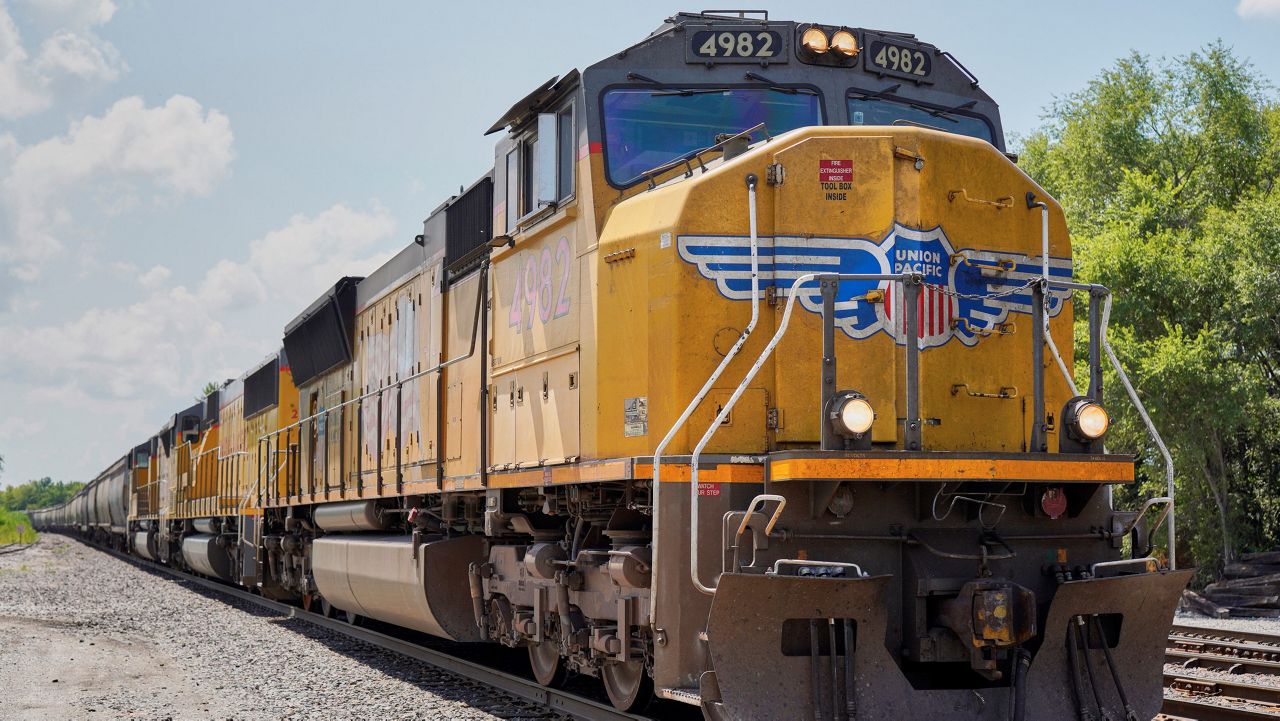OMAHA, Neb. (AP) — Union Pacific's fourth-quarter profit crept up 1% as the railroad delivered more fertilizer, imported goods and vehicles.
The Omaha, Nebraska-based railroad said it earned $1.65 billion, or $2.71 per share, in the quarter. That's up slightly from $1.64 billion, or $2.67 per share, a year earlier.
The results topped the estimates of the analysts surveyed by FactSet Research that called for earnings of $2.60 per share as Union Pacific hauled 3% more shipments.
CEO Jim Vena said the railroad's key operating metrics improved in the fourth quarter with average freight car velocity jumping 14% to 217 daily miles per car, and the average maximum length of Union Pacific's trains increased 2% to 9,413 feet. The average speed of the railroad's trains also increased 5% to 24.9 mph.
“We enter 2024 with strong momentum, recognizing we have plenty of opportunity to improve. We’re excited to show our stakeholders what our great team can accomplish,” Vena said.
Union Pacific predicted volume growth will be “muted” this year as the economy is expected to remain weak. The railroad also lost a contract to haul some imported goods and it expects weaker coal demand.
The railroad's revenue slipped slightly to $6.16 billion as fuel surcharge revenue declined and the mix of shipments shifted to a less-profitable mix of cargo and revenue per car declined 3%. But Union Pacific's topped Wall Street's predictions for $6.05 billion. revenue.
Union Pacific was able to keep its expenses flat during the quarter at $3.75 billion as it laid off a couple hundred managers and more than 1,000 seasonal track maintenance workers as it delayed some capital projects at end of the year.
The railroad said it plans to invest $3.4 billion in improvements to its network and equipment this year, but investors may be disappointed that Union Pacific doesn't plan any share repurchases during the first quarter.
Union Pacific is one of the nation’s largest railroads and operates more than 30,000 miles of track in 23 western states.
Railroad safety has been a concern ever since a Norfolk Southern train derailed last February, spilled hazardous chemicals and caught fire in eastern Ohio. Members of Congress proposed reforms but those have largely stalled.



